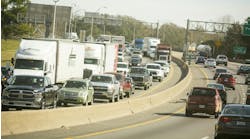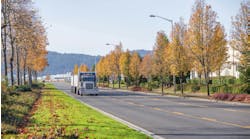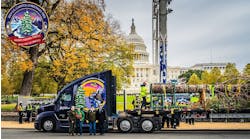How did we pack all that action into one year?
Another year, another decade, another century, another millennium - where does the time go? I was born smack-dab in the middle of the 20th Century, and as a kid the year 2000 seemed off in the far, far, almost unimaginably distant future. Now, it's just a few weeks away. Maybe it's a backlash against millennial hoopla. But instead of goading me into a long-term retrospective, the approach of New Year's Eve has me thinking about 1999.
It seems a bit shortsighted to look back over just a single year when we're facing such a monumental calendar event as the start of a new millennium, yet I can't help but think that in many ways this last year offers a perfect summation of trucking's achievements and failures.
The high point has to be the broad acceptance of new technology, most of it based on advanced electronics. If there were any doubts, this last year made it clear that the U.S. has shifted to a knowledge-based economy. A simplistic view says trucking is largely about the movement of goods, and that it should have little or no place in that new world. Instead, fleets of all types have invested in new information systems that make them key players in the knowledge-based realms of logistics and e-commerce.
Just look at the recent initial public stock offering by UPS. It was greeted by a media and investor frenzy rivaling any ".com" IPO. Why? Because the once low-tech package-delivery company has reinvented itself as a central player in e-commerce.
Investment in development of advanced electronics for the trucks themselves also showed major dividends this year. We had significant fleet acceptance of advanced collision warning systems, automated mechanical transmissions, and "smart" dashboards with integrated computers. But for my money, the most significant example was the ability of engine makers to adopt new and unplanned-for EPA emissions requirements on the fly without damaging reliability, driveability, or efficiency.
The TL segment has long been a primary market for wireless data. In 1999, though, there was an explosion of new systems and services aimed at LTL carriers, service fleets, retail distribution operations, and just about any kind of business using trucks.
After years of promises, untethered trailer tracking finally moved from vaporware to commercial-ware, with a healthy number of competitors unveiling working systems and signed fleet contracts.
While technology delivered the industry's highpoint in 1999, the low point has to be trucking's general failure to solve its crippling people problems. Despite years of talking about the driver shortage, truckload carriers will end the year still trading drivers with the competition and scratching their heads over how to keep them. And every fleet is still being squeezed by a general shortage of qualified technicians who can service all of their high-tech marvels.
Related to those labor shortages, and just as intransigent a problem, is trucking's continuing poor public image. No matter what the safety statistics show, trucks are still generally perceived to be the bullies of the road. And no matter how quickly or completely it embraces advanced technologies, the industry can't shake its "grease under the finger nails" image, making it all that much more difficult to compete in the labor market.
All in all, 1999 has been an interesting year for trucking. Once the partying subsides, I expect 2000 will bring a lot more of the same. Have a good one.


